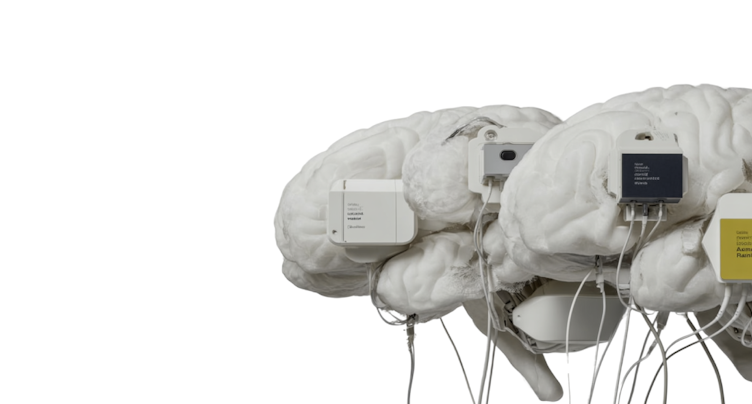share this post on


08 October, 2024
Digital health interventions have the power to positively transform the way patients manage their health, also impacting the workforce of the healthcare system and how the system operates overall. Bringing a digital aspect to healthcare and the rightly built interventions, means accessible, easier, tailored, with long-lasting results — read on to see how all this can be possible.
What are digital health interventions?
Digital health interventions support individuals, both the users and the workforce of the health(care) system, and address the needs and challenges of the overall health system by using digital technologies in the form of different applications and services.
The WHO’s latest publication adds that digital health interventions can target patients or users of health services, healthcare providers, health system managers, and data services — below we’ll mainly focus on the first group, although such interventions usually have wide-ranging impact across the health system, reaching other groups as well.
These interventions point to the the concept and practice of digital transformation in health which is the comprehensive combination of different innovative technologies, analytics and processes for the improvement of the healthcare system itself.
Why and when is digital health intervention useful?
Digital health interventions work at the intersection of health(care) and technology, in the field of, as the name suggests, digital health, and so play an important role in enhancing the way that all the members of the healthcare system approach health issues — from broadening access to the healthcare system to improving the services available.
Digital health interventions help patients manage their health via computers, smartphones, and even virtual reality, and can be used, for instance, to facilitate targeted communications to individuals through reminders and health promotion messaging in order to stimulate demand for services and broaden access to health information.
|
What is digital health? According to the European Commission, the purposes of digital health are “to improve prevention, diagnosis, treatment, monitoring, and management of health-related issues and to monitor and manage lifestyle habits that impact health”. As for the related tools and practices, the FDA lists “mobile health (mHealth), health information technology (IT), wearable devices, telehealth and telemedicine, and personalized medicine” and the WHO mentions “artificial intelligence, big data, blockchain, health data, health information systems, the infodemic, the Internet of Things, interoperability and telemedicine.” |
Patients, in general, need to do the following to manage their health:
- Gain insights into their health
- Understand their symptoms and know when they need to act on it
- Find the patient care they need
- Stick to the treatment that was recommended
One of the most well-known examples of digital health intervention are the symptom checker sites available online which help people identify what may cause their symptoms. The diagnostic accuracy of these platforms varies but ADA, for instance, has a 77% accuracy which is a solid start to give you more information on your health before you consult a healthcare professional, if needed.
3 AI-driven digital health intervention tools to improve patient experience
Digital health interventions when driven by AI have the ability to help patients manage their health in a much easier and more personalized way, thus helping improve patient experience.
This is necessary for a number of reasons. First, patients often find themselves lost in the vast amount of medical information available which might even end up being irrelevant or not specific enough to improve their health outcomes.
Besides the information overload, patients can have trouble understanding medical information and prioritising the necessary steps to start and follow new habits or to keep to a patient care plan, not to mention the lack of expert help that could be the vessel for motivation and encouragement on their health journey.
AI-driven digital health intervention can support patients:
- gather useful information,
- process it easily in a digestible format and
- apply it in a tailored way.
By providing this level and quality of support and guidance, AI can boost people’s motivation to keep track of their health and simplify the activities one has to do to maintain it.
Digital health intervention with AI #1: Tailor information and educate
AI-driven digital health interventions can analyze patient data, such as medical history and demographics, to understand their specific needs. Based on this analysis, AI can generate personalized educational materials on diagnoses, medications, and preventive care. This empowers patients with knowledge relevant to their situation, fostering better engagement.
Symptom assessment apps, such as the previously-mentioned ADA or Buoy Health are good examples of a digital product leveraging AI for personalized communication — both use chatbots to answer patients' health questions, offering personalized information and connecting them with appropriate resources.
Digital health intervention with AI #2: Improve accessibility and communication
The way how support, guidance and mentoring is provided to patients is the key to success — success meaning a healthy life. Whether the patient will actually find that support useful and make them end up acting on it right, depends on the the format, the content and the timing of getting support, motivational messages or notifications. Therefore it should be personalized based on their individual needs and preferences — AI chatbots can offer a simple solution here.
AI chatbots as digital health interventions can:
- be available 24/7, addressing basic inquiries and scheduling appointments, freeing up healthcare staff for more complex tasks,
- translate languages, ensuring clear communication between patients and providers who don't share a common language,
- can offer ongoing support for chronic conditions, answer questions, and track symptoms.
|
Habita app: AI-powered digital health intervention to fight a chronic disease
Hypertension (high blood pressure) is a chronic disease in which self-management plays a key role. Supercharge worked with Egis to develop the Habita app, a mobile app for patients with this condition, to increase their adherence to treatment plans recommended by their healthcare professional. Habita, the personal virtual companion in the app, pays attention to the patients’ individual needs and never lets go of their hands while mastering their new routine. |
Digital health intervention with AI #3: Send proactive reminders and offer support
Patients can follow up on their treatment when it is easily adaptable to their daily life. The format of the knowledge source, the way the information is presented can change how easily or difficult it is for someone to process it — and the preferences could be different on an individual level.
The more personal and personalized these notifications are, the more effective they will be. Some of the related principles to follow are:
- Effortless automation: AI can send automated reminders to work out or track food consumption or sleep. It can also generate medication adherence reminders, prompting patients to take their medication on time.
- Tailored communication: The reminders can be tailored to the patient's preferred communication method (text, email, phone call). The form, content and the timing of notifications defines the impact of the notification and defines whether the patient will actually act on it or not.
- Personalized motivation: An AI-driven digital health intervention tool can use supporting messages that are relevant for that individual, and truly have an impact on that person’s motivation, focusing on their personal drives and ambitions.
|
The Vi app: Personalized recommendations for women in menopause The app Vi, breaking the taboo surrounding menopause in the workplace, has a built-in ChatGPT-driven menopause coach called Vera who offers emotional support and provides advice on coping strategies for dealing with emotional challenges associated with menopause. Whether about mood swings, stress reduction techniques, or promoting mental well-being, the AI coach can offer personalized lifestyle recommendations based on the users’ problems and questions. |
Digital health intervention led by experts
Patients can be supported in their health management by sufficient knowledge on how to manage their health and by getting guidance and mentoring to actually do what needs to be done.
Digital health intervention tools, especially when equipped with AI, can support both the information gathering and processing, and the execution of healthy habits and activities — leading the way to digital transformation in healthcare.
Look at more healthcare case studies about successful digital health interventions and see how AI-enabled healthcare app development works in partnership with Supercharge’s expert team, successfully navigating the business, technology and regulatory complexities of the healthcare industry.
Want to create an innovative digital health solution? Let's chat!
The form is loading...




